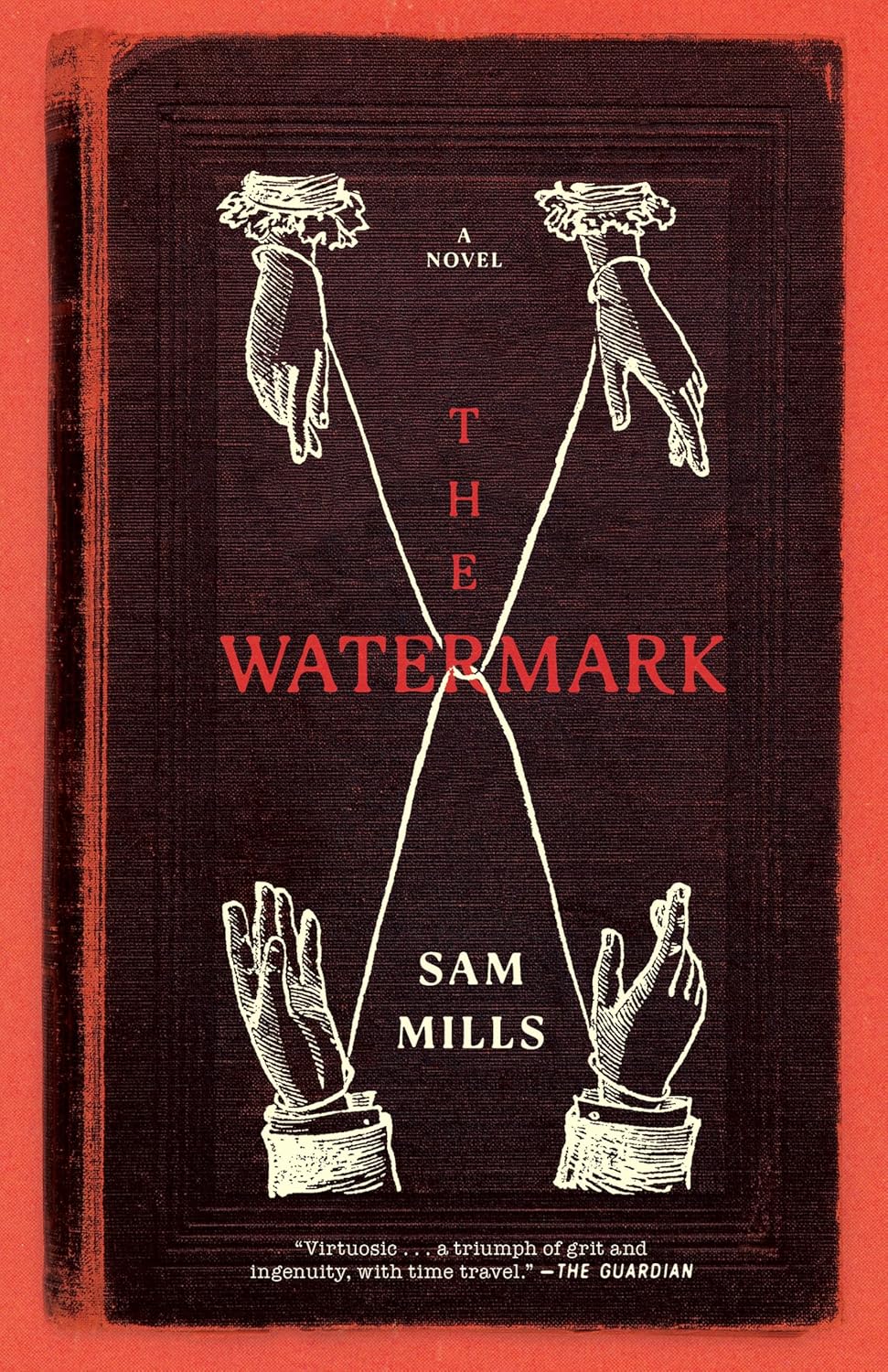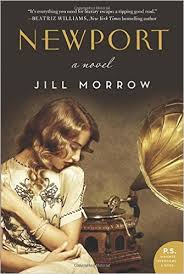The Watermark: A Novel
- By Sam Mills
- Melville House
- 544 pp.
- Reviewed by Drew Gallagher
- April 25, 2025
A remarkably ambitious, remarkably uneven tale.

Once upon a time, a fairy princess named Taylor Swift held random drawings on a fan website, and a few lucky Swifties would be chosen and invited to meet with her in Nashville to listen to new songs. For those happy few, it was a magical trip to the chocolate factory without having to buy a candy bar.
The concept behind The Watermark is similar: A reclusive Welsh author, Augustus Fate, invites fans Rachel and Jaime to an exclusive meeting at his cottage for talks, interviews, and a spot of tea. But the famed scribe has no new novel (or even revamped Taylor’s Versions) to share because he’s suffering from writer’s block. Instead, he drugs the nascent lovers and attempts to end his creative drought by using them in his stories.
He’s a right old bastard, this guy, and — based on some of the resulting tales — he’s not very good at busting out of creative slumps.
British author Sam Mills is making a reputation for herself as someone who suffuses her work with multiple layers that challenge the reader, and in The Watermark (her second novel for adults after three YA offerings), the narrative’s connective tissue stretches across a number of works of literature and time periods.
There’s the modern-day U.K., for starters, which is where Rachel and Jaime first encounter the mysterious author. From there, readers are taken (among others) on a jaunt back to the late 1700s, to Czarist Russia, and forward into the mid-21st century. In each setting, Rachel and Jaime — sometimes with different names — are connected, even though their stations in life are dramatically different depending upon the whims of the sociopathic Augustus.
Given their sheer number, it’s inevitable that some of the stories will be better than others; still, the varying level of quality can be jarring. Just when the reader is getting to know the protagonists in Russia (the best of the threads), they’re frustratingly transported to a different time and location — and into a lesser saga. In a college-lit course, The Watermark would be ripe for deconstruction, but absent such classroom guidance, this reader was left exhausted by the machinations of the author — both the real one and the sadist on the page.
Of course, not all writers are evil, and a new one emerges who attempts to save Jaime and Rachel from the fictive whims of his rival. Alas, his storyline eventually sputters out, and the two are forced to rely on their own powers of recall to get them home. Here, Jaime jogs his own memory from a Soviet jail cell:
“Manchester. Manchester came before Carpathia. I owned a shop there too, but I rarely sold Scriabin; more like Sufjan Stevens, the Manic Street Preachers, the Beatles. There were cars on the roads, there was a church, a cinema, we saw The Aviator, a row of shops on a road that begins with D. Raisa and I in the back of a taxi, her feather boa bristling against my skin, my heart beating with a love that I dared not translate into speech. But how did we come to be here, in the nightmare of snow, authoritarian laws, wolves and folklore?”
Rachel and Jaime maintain their love through most of the eras (not Taylor’s Version), except for when Rachel cheats with an AI robot she’s supposed to be counseling (cyborgs can be sad, too). Mills manages to ratchet up the tension as the novel tumbles toward its conclusion, but the ending seems a bit abrupt, which is saying something after 500-plus pages.
There are elements of The Watermark to be admired, and foremost is the ambition of the author. Mills’ prose seldom flags, and her descriptions of Rachel’s paintings are as rich as the works her character creates. There’s also the thrill of imagining what it would be like to enter favorite novels, as Jaime and Rachel sometimes do when their drugged tea transports them into classic texts. In the end, unfortunately, entering The Watermark proves less enjoyable than exiting it.
Drew Gallagher is a freelance writer in Fredericksburg, Virginia. He is the second-most-prolific book reviewer and first video book reviewer in the 140-year history of the Free Lance-Star newspaper. He writes a weekly humor column for the FXBG Advance that you can pay for (or you can just click a tab that lets you read it for free, which is what his friends and family do).

_1.png)